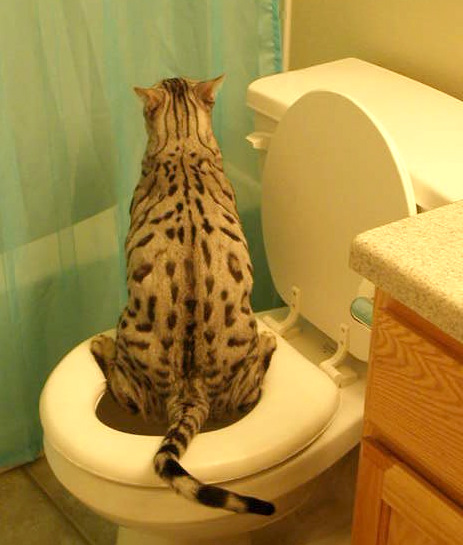Potential Risks of Flushing Cat Poop Down Your Toilet - Tips for Better Handling
Potential Risks of Flushing Cat Poop Down Your Toilet - Tips for Better Handling
Blog Article
Presented here down the page you will find additional good data on the subject of Don’t flush cat feces down the toilet.

Introduction
As feline owners, it's important to bear in mind exactly how we deal with our feline buddies' waste. While it might seem convenient to purge pet cat poop down the toilet, this method can have destructive consequences for both the environment and human health.
Ecological Impact
Flushing cat poop introduces unsafe pathogens and bloodsuckers right into the water system, presenting a significant risk to marine communities. These contaminants can negatively impact marine life and concession water quality.
Health and wellness Risks
Along with ecological worries, flushing feline waste can likewise position wellness risks to human beings. Cat feces may have Toxoplasma gondii, a bloodsucker that can cause toxoplasmosis-- a possibly severe health problem, especially for expectant women and people with weakened immune systems.
Alternatives to Flushing
Fortunately, there are much safer and much more accountable ways to throw away feline poop. Take into consideration the following choices:
1. Scoop and Dispose in Trash
The most typical technique of throwing away cat poop is to scoop it into a biodegradable bag and throw it in the trash. Make certain to make use of a dedicated litter inside story and get rid of the waste without delay.
2. Usage Biodegradable Litter
Select eco-friendly cat litter made from products such as corn or wheat. These litters are environmentally friendly and can be securely thrown away in the garbage.
3. Bury in the Yard
If you have a yard, take into consideration burying pet cat waste in a marked location away from vegetable gardens and water resources. Make certain to dig deep sufficient to prevent contamination of groundwater.
4. Mount a Pet Waste Disposal System
Buy a pet dog garbage disposal system especially developed for pet cat waste. These systems utilize enzymes to break down the waste, lowering odor and environmental impact.
Conclusion
Liable animal possession extends beyond offering food and sanctuary-- it additionally involves appropriate waste administration. By avoiding purging pet cat poop down the commode and selecting alternate disposal techniques, we can lessen our ecological footprint and secure human health and wellness.
Why You Should Never Flush Cat Poop Down the Toilet
A rose by any other name might smell as sweet, but not all poop is created equal. Toilets, and our sewage systems, are designed for human excrement, not animal waste. It might seem like it couldn’t hurt to toss cat feces into the loo, but it’s not a good idea to flush cat poop in the toilet.
First and foremost, assuming your cat uses a litter box, any waste is going to have litter on it. And even the smallest amount of litter can wreak havoc on plumbing.
Over time, small amounts build up, filling up your septic system. Most litter sold today is clumping; it is made from a type of clay that hardens when it gets wet. Ever tried to scrape old clumps from the bottom of a litter box? You know just how cement-hard it can get!
Now imagine just a small clump of that stuck in your pipes. A simple de-clogger like Drano isn’t going to cut it. And that means it’s going to cost you big time to fix it.
Parasitic Contamination
Believe it or not, your healthy kitty may be harboring a nasty parasite. Only cats excrete Toxoplasma in their feces. Yet it rarely causes serious health issues in the cats that are infected. Most people will be fine too if infected. Only pregnant women and people with compromised immune systems are at risk. (If you’ve ever heard how women who are expecting are excused from litter cleaning duty, Toxoplasma is why.)
But other animals may have a problem if infected with the parasite. And human water treatment systems aren’t designed to handle it. As a result, the systems don’t remove the parasite before discharging wastewater into local waterways. Fish, shellfish, and other marine life — otters in particular — are susceptible to toxoplasma. If exposed, most will end up with brain damage and many will die.
Depending on the species of fish, they may end up on someone’s fish hook and, ultimately on someone’s dinner plate. If that someone has a chronic illness, they’re at risk.
Skip the Toilet Training
We know there are folks out there who like to toilet train their cats. And we give them props, it takes a lot of work. But thanks to the toxoplasma, it’s not a good idea.

We were brought to that editorial on Don’t flush cat feces down the toilet from a friend on a different domain. Sharing is caring. Helping people is fun. Many thanks for your time. Don't forget to pay a visit to our website back soon.
Book Service Report this page